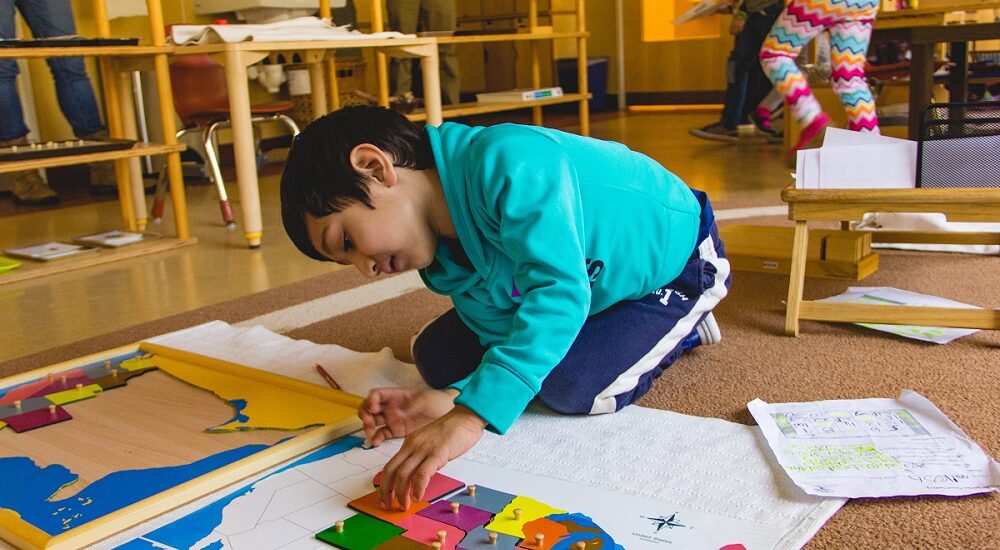Developed by Dr. Maria Montessori in the early 1900s, the Montessori is a child-centered method of education involving child-led activities. Choosing Montessori schools in Plano for the children comes with several benefits. Known for individually paced learning and independence, the Montessori education system also encourages empathy, a passion for moral and social justice, and joy in lifelong learning in children. Read further to explore some key benefits of the Montessori education system.
Focuses on Key Developmental Areas
A Montessori education system focuses on key developmental areas in children aged from three years to five years. Younger children focus on improving large muscles along with language skills. Four-year-old children work on improving their motor skills and learn to complete daily activities. And the older preschoolers, through trips and events, broaden their learning experience in their societies.
Encourages Cooperative Play
In the education system of Montessori schools in Plano, students are guided to do activities by themselves throughout the day. This, in turn, encourages children to share and work cooperatively to explore several fun tasks in their classrooms. The nature of the environment in such classrooms helps children in learning to respect each other and also builds a sense of community.
Children Naturally Learn Self-Discipline
While the Montessori education system allows children to choose the activities they want to learn and how long they want to work on a particular activity, there are some ground rules for the class that is enforced by the teachers and other students. Studying in this certain environment lets children learn about self-discipline and also other vital skills like self-control, motivation, and concentration.
The Classroom Environment Teaches Order
All objects and activities have precise locations on the shelves of the schools practicing Montessori education. When children are done with certain activities, the items used for such activities are placed back into their respective places. This sense of order facilitates the learning process and caters to the children’s innate need for an orderly environment.
Learning Methods Inspire Creativity
Now that children studying the Montessori schools are allowed to choose their activities and work on them according to their terms, creativity in such classrooms is encouraged to a great extent. Certain tasks are performed by children not for achieving end results but for the joy of the work. Which allows them to focus on the process rather than the results- a natural pathway of creativity.
The Curriculum Focused on Hands-On Learning
The next major benefit of Montessori education is that it focuses on hands-on learning. The emphasis is on concrete, not abstract learning, as children work on the activities that help them learn different languages, subjects, cultures, and practical life lessons.
Conclusion
Montessori education is a nontraditional grading system that allows pre-school children to choose different activities they want to learn throughout the day. Instead, of a traditional educational curriculum, Montessori schools in Plano focus on the overall development of the students- social, intellectual, emotional, educational, and physical development. Now with the Montessori education system children can learn and develop at their pace.









